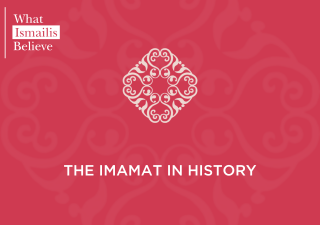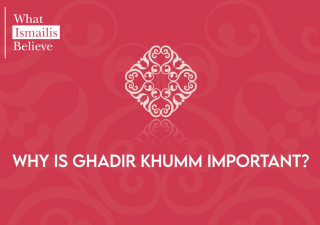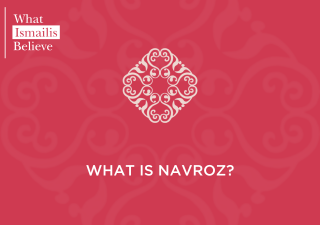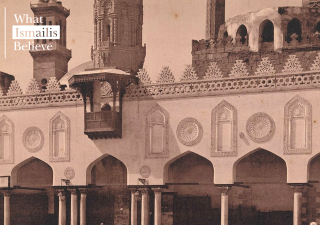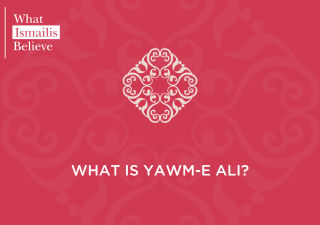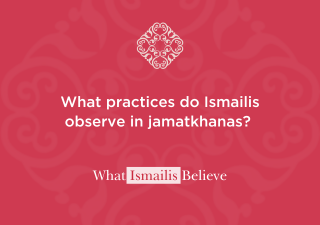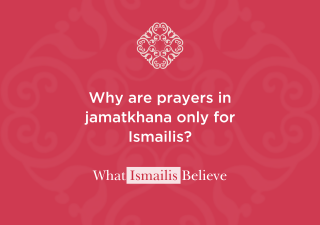What Ismailis Believe
On 13 December 2024, the global Jamat will celebrate the 88th birthday of our present living Imam, His Highness Prince Karim Aga Khan. The celebration of Hazar Imam's birthday is an occasion for Ismailis to reflect on the unique spiritual bond that links each murid to Hazar Imam. It also affords the Jamat an opportunity to express its love, loyalty, and devotion to the Imamat, which binds the Ismaili community together as one.
For Imamat Day, Professor Azim Nanji joins Sheizana Murji for an interview, “The Imamat in History,” that explores the nature of the Imam's authority in Shia Ismaili Islam and how the Imamat has impacted the global Jamat and wider society.
According to Shia belief, by declaring Hazrat Ali as Mawla after him, the Prophet Muhammad (peace be upon him and his family) transferred his own spiritual authority bestowed upon him by Allah to Hazrat Ali, making him — and all the Imams that follow — the Amirul Mu’minin, or Master of the Believers.
Eid al-Fitr is a festival in which we express gratitude for the blessings in our lives, extend our compassion and generosity to others, and celebrate with our families and communities. Watch this clip to learn about the festival that marks the end of the month of Ramadan. Also available in Arabic, French, Farsi, Gujarati, Portuguese, Tajik, and Urdu.
Navroz, like new years traditions from other cultures, is a day when families and communities come together. It's a reminder of renewal and a fresh start. It's also a chance to reflect on one’s personal life, to think about achievements and failures during the previous year, and to make resolutions for the new year.
One of the many devotional practices Muslims observe at various points of the year is fasting (sawm). Muslims have different ways of fasting, including all forms of self-restraint. This includes not eating and drinking, feeding a poor person, being absorbed in the remembrance of God, avoiding gossip or saying mean things, not being greedy with one’s eyes or mouth, showing humility, and the purification of oneself.
The latest video in our What Ismailis Believe series explains the significance of Mi'raj - the night journey of Prophet Muhammad (peace be upon him and his progeny).
There is a common misperception that Islam is not compatible with the use of the intellect. In reality, intellectual search is an important part of many interpretations of Islam going back to the time of Prophet Muhammad (peace be upon him and his progeny). Education in Islam is meant to better understand and serve God’s creation. This is reflected in various institutions of learning developed by Muslims over the centuries, including under the leadership of the Ismaili Imamat.
The latest video in our What Ismailis Believe series explains the significance of Yawm-e Ali. This week, Ismailis and other Shia Muslims mark Yawm-e Ali to commemorate the birthday of Hazrat Ali (peace be upon him), who is revered by many Muslim communities for his wisdom, piety, and leadership.
Muslims regard Jesus (peace be upon him) as one of the great prophets who brought divine guidance to humanity before Prophet Muhammad (peace be upon him and his family).
Ismaili practices in jamatkhanas are expressions of the spiritual bond between the hereditary Ismaili Imam-of-the-Time and his followers, as conveyed in the pledge of allegiance (bay‘a) that each Ismaili offers to the Imam. They include various forms of prayer mentioned in the Holy Qur’an and other expressions of piety and devotion through which Ismailis seek God’s grace and mercy through the intercession of the Prophet and the Imams. Jamatkhana practices are the sole prerogative of the Imam-of-the-Time and are specific to the Ismaili community.
Participation in formal prayers in Ismaili jamatkhanas is restricted to those who pledge their allegiance (bay‘a) to the Ismaili Imam-of-the-Time. In Shia Islam, the authority of the Imam is rooted in the notion of hereditary succession from Prophet Muhammad (peace be upon him and his progeny), and the practices observed in jamatkhanas are the sole prerogative of the Imam-of-the-Time.


